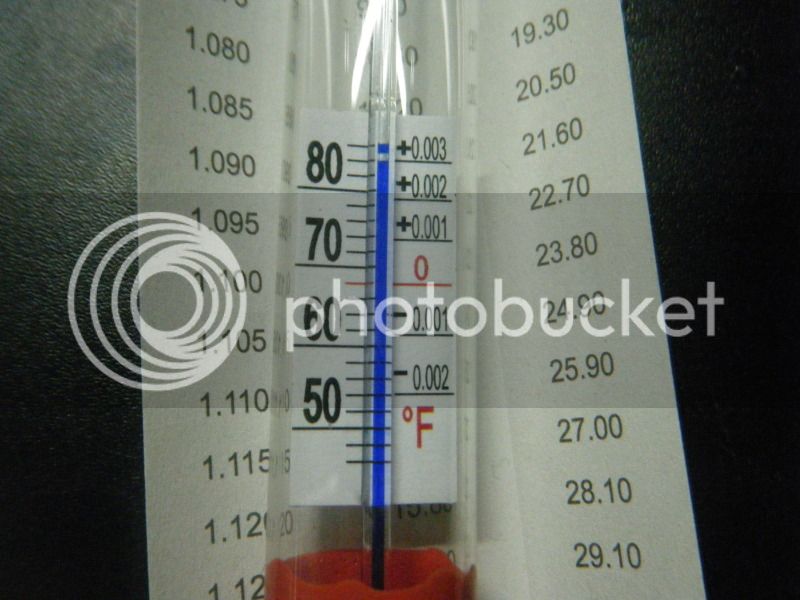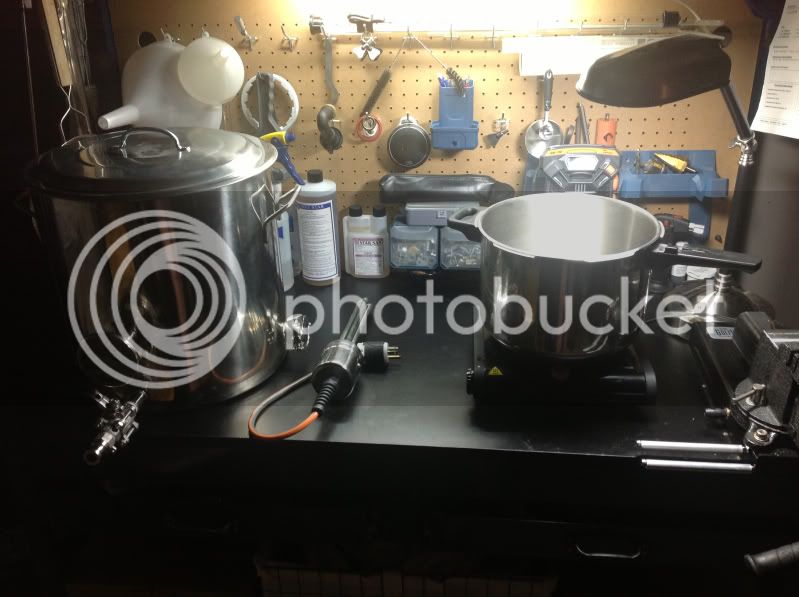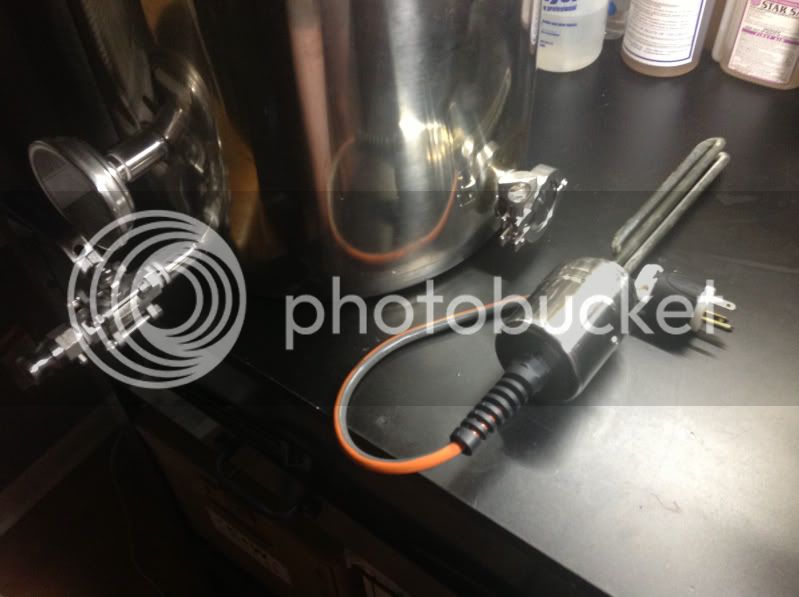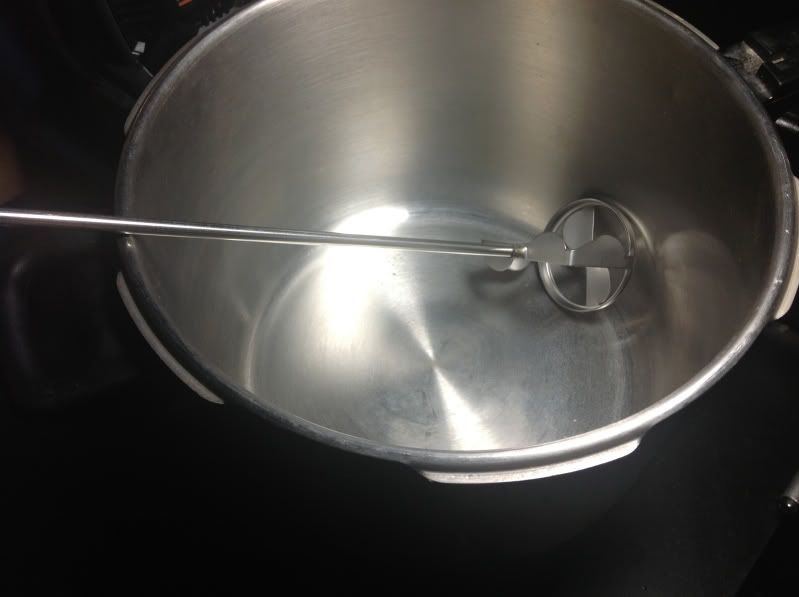Advanced Extract Brewing “AEB”
I introduce my self as a extract brewer of about 3 years. My hope is to give extract brewers an outlet to move there skill forward without making the big jump to all grain. Small space brewers might also gain a little knowledge in what I'm writing. We don't have the time ,space or money to go into a all grain setup. Yes i said that.
From here forward i assume most brewers have a couple of brews under there belt. You got the gist of how to brew an extract beer and your RLHAHB is well settled. For a long time extract brewing was called a stepping stone to all grain. Today many AG brewers are revisiting extract brewing. Be it to fill the gap in a pipeline or the fact they can not devote a full off day to brewing.
Ingredients: Pro extract brewers are not using pre hopped kits in a can. nor are they using the commercial pre boxed kits found in most LHBS “Brewers Best” True Brew” I'm looking at you ! When we get our ingredients or kits. They are made at the time the order is filled and shipped to us. Not pre packaged and sitting in a warehouse until your LHBS makes the order. Then its sitting on there shelves for god knows how long. This is just a start to what i want to write, If i get enough response i will write further.
Malt extract: Its the base of our soon to be beer. I often find its one of the most over looked ingredients that we use. If a all grain brewers mash temps are off so is the beer. This relates to us as extract brewers. If the company producing the extract is inconsistent. Then our beer is going to be inconsistent. Our soon to be beers outcome is in the hands of the company making our malt extract. As well as the packaging and handling to our door.
The great thing we have on our side is rather large companies who's sole business is grain and malting. We have pro mashers in our pocket. Today we now have a large verity of base malts to chose from over what was out there 5-10 years ago.
Just like a loaf of bread from the store. Extract can and will go bad. Light, heat,age and oxygen will deteriorate extract very fast. How is your extract packaged ? In a can, in a jug or container ? Can you see light or air through the container holding the extract ? All grain brewers would never pre crush 100 lbs of base malt and then let it sit for a month or more.
Take great care that you are getting the freshest extract possible. Refrigeration will go a long way in making sure it stays fresh until brew day.
A different way of brewing extract beer.
One of the biggest improvements I've made to my brewing thats not really talked about a lot. Is using a ultra light extract as your base and use the steeping grains for the color and flavor. 90% of the beers i make today are done this way. Porters,stouts,ambers and pales. The reason behind this is that i could never get fermentation consistency between the same batches with flavored extracts. I don't blame that on the company producing the malt. I blame the handling in between.
Steeping grains.
Because i depend on steeping grains to give me the color and flavor. Make sure your grains have a good crush. If not use a mill or place them in a ziploc bag and use a rolling pin. There shouldn't be whole kernels in your steeping grains. Water measurements are a little lass than 1 gallon per pound for steeping. I bring the steeping water up 170, turn off the heat and steep for 30 minutes using a timer. I even go so far as to sparge out the steeping grains to get as much out of them as I can.
Doing this allows us to experiment a bit. The flavor and color out come of our beer is now in our hands.
About SG and FG readings:
One of the most important and often over looked parts of brewing is taking readings. Some of this could be because the brewer doesn’t understand completely of what and why. The “why” is because of consistency. Brewers know all to well that consistency is the name of the game to great beer. There are many parts of a brew day that needs to be consistent, taking gravity readings during the boil and after fermentation are important.
Before I go on I want to make sure everyone understands one important thing. “Not all sugar is fermentable” “All sugar both fermentable and non-fermentable is read”. Taking a gravity reading shows all sugars.
Refractometer and Hydrometer:
Most brewers only use or own a refractometer. The problem with using refractometer is taking a SG reading is done after the wort is chilled and in the fermenter. By then is too late to try and adjust the gravity of the wort . AEB brewing is being able to check and adjust your gravity on the fly. This is where a refractometer comes into play. Not only do you not lose a vile of wort when measuring but you can take a reading during the boil. I always bump my SG up by adding some DME to compensate for the fact that the LME sugars are not fully fermentable. Refractometers can be had for cheap if you look around. The one I use reads both Brix and Gravity. A good high quality hydrometer should also be part of you brew equipment. The one I use also have a thermometer built in to compensate the readings.

More to come........
I introduce my self as a extract brewer of about 3 years. My hope is to give extract brewers an outlet to move there skill forward without making the big jump to all grain. Small space brewers might also gain a little knowledge in what I'm writing. We don't have the time ,space or money to go into a all grain setup. Yes i said that.
From here forward i assume most brewers have a couple of brews under there belt. You got the gist of how to brew an extract beer and your RLHAHB is well settled. For a long time extract brewing was called a stepping stone to all grain. Today many AG brewers are revisiting extract brewing. Be it to fill the gap in a pipeline or the fact they can not devote a full off day to brewing.
Ingredients: Pro extract brewers are not using pre hopped kits in a can. nor are they using the commercial pre boxed kits found in most LHBS “Brewers Best” True Brew” I'm looking at you ! When we get our ingredients or kits. They are made at the time the order is filled and shipped to us. Not pre packaged and sitting in a warehouse until your LHBS makes the order. Then its sitting on there shelves for god knows how long. This is just a start to what i want to write, If i get enough response i will write further.
Malt extract: Its the base of our soon to be beer. I often find its one of the most over looked ingredients that we use. If a all grain brewers mash temps are off so is the beer. This relates to us as extract brewers. If the company producing the extract is inconsistent. Then our beer is going to be inconsistent. Our soon to be beers outcome is in the hands of the company making our malt extract. As well as the packaging and handling to our door.
The great thing we have on our side is rather large companies who's sole business is grain and malting. We have pro mashers in our pocket. Today we now have a large verity of base malts to chose from over what was out there 5-10 years ago.
Just like a loaf of bread from the store. Extract can and will go bad. Light, heat,age and oxygen will deteriorate extract very fast. How is your extract packaged ? In a can, in a jug or container ? Can you see light or air through the container holding the extract ? All grain brewers would never pre crush 100 lbs of base malt and then let it sit for a month or more.
Take great care that you are getting the freshest extract possible. Refrigeration will go a long way in making sure it stays fresh until brew day.
A different way of brewing extract beer.
One of the biggest improvements I've made to my brewing thats not really talked about a lot. Is using a ultra light extract as your base and use the steeping grains for the color and flavor. 90% of the beers i make today are done this way. Porters,stouts,ambers and pales. The reason behind this is that i could never get fermentation consistency between the same batches with flavored extracts. I don't blame that on the company producing the malt. I blame the handling in between.
Steeping grains.
Because i depend on steeping grains to give me the color and flavor. Make sure your grains have a good crush. If not use a mill or place them in a ziploc bag and use a rolling pin. There shouldn't be whole kernels in your steeping grains. Water measurements are a little lass than 1 gallon per pound for steeping. I bring the steeping water up 170, turn off the heat and steep for 30 minutes using a timer. I even go so far as to sparge out the steeping grains to get as much out of them as I can.
Doing this allows us to experiment a bit. The flavor and color out come of our beer is now in our hands.
About SG and FG readings:
One of the most important and often over looked parts of brewing is taking readings. Some of this could be because the brewer doesn’t understand completely of what and why. The “why” is because of consistency. Brewers know all to well that consistency is the name of the game to great beer. There are many parts of a brew day that needs to be consistent, taking gravity readings during the boil and after fermentation are important.
Before I go on I want to make sure everyone understands one important thing. “Not all sugar is fermentable” “All sugar both fermentable and non-fermentable is read”. Taking a gravity reading shows all sugars.
Refractometer and Hydrometer:
Most brewers only use or own a refractometer. The problem with using refractometer is taking a SG reading is done after the wort is chilled and in the fermenter. By then is too late to try and adjust the gravity of the wort . AEB brewing is being able to check and adjust your gravity on the fly. This is where a refractometer comes into play. Not only do you not lose a vile of wort when measuring but you can take a reading during the boil. I always bump my SG up by adding some DME to compensate for the fact that the LME sugars are not fully fermentable. Refractometers can be had for cheap if you look around. The one I use reads both Brix and Gravity. A good high quality hydrometer should also be part of you brew equipment. The one I use also have a thermometer built in to compensate the readings.

More to come........


 I wanted to get it out there that there are brewers out there who do really well with extract.
I wanted to get it out there that there are brewers out there who do really well with extract. 


